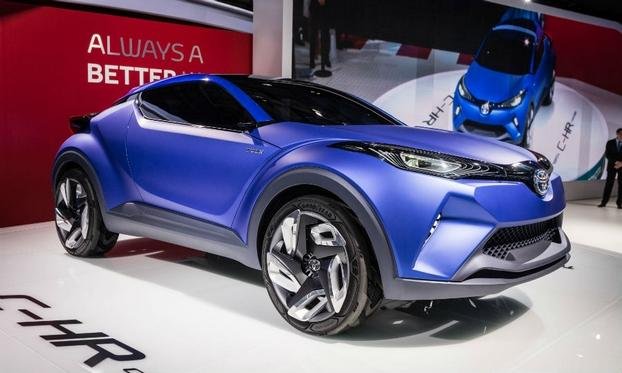Toyota Confirms New Crossover for Europe

The car will be built at Toyota's factory in Turkey for European markets starting toward the end of the year, the company said in a statement on Thursday.
Toyota debuted the CH-R concept at the Frankfurt auto show last September. The production model will be unveiled at the Geneva show on March 1, the automaker said.
Toyota said the production C-HR will be sold throughout Europe and outside Europe.
The crossover will be sold in the U.S. starting in 2017 as a Toyota model. Previously it was planned for the U.S. under the Scion nameplate that Toyota is scrapping.
Toyota did not say where the U.S. version will be built. "Scion is transitioning to Toyota and we will carry the crossover when it launches. Export destinations from our Turkey plant are not finalized yet," a Toyota spokesman told Automotive News Europe.
In Europe, the C-HR marks the start of Toyota’s drive to rebuild its presence in the booming SUV segment after years of losing market share to competitors such as Nissan. In size the crossover sits between the Nissan Juke subcompact SUV and the Toyota RAV4 compact SUV.
Both segments saw big growth in Europe in 2015, with sales of subcompact SUVs rising 36 percent to 1.04 million and compacts up 14 percent to 1.17 million, according to figures from JATO Dynamics.
"The crossover market has been booming and will continue to grow in Europe and elsewhere. This will provide our European operations with sustainable growth," Toyota Europe CEO Johan van Zyl said in the statement.
The production C-HR will be built on Toyota’s new TNGA global architecture, which has been designed to reduce the number of platforms the company uses globally. The first car to get the platform was the recently launched new-generation Prius hybrid. Toyota has predicted that half its cars will be on built on the TNGA platform by 2020.
Hybrid powertrain
Toyota did not say whether the production model will keep the C-HR name. It also did not release engine details ahead of the crossover’s Geneva debut except to say it will have a hybrid variant right from the sales launch. Like the Auris compact and Yaris subcompact, the CH-R likely will have gasoline, diesel and gasoline-electric hybrid variants.
The C-HR’s 1.8-liter hybrid engine will be made at Toyota’s engine plant in Wales and shipped to the company’s factory in Sakarya, Turkey. The UK factory also builds hybrid and gasoline engines for other Toyota models.
The Turkey plant currently builds the Verso compact minivan and Corolla compact sedan. Toyota will increase annual capacity at the Turkey factory to 280,000 from 150,000. The automaker will invest 350 million euros ($400 million) in the plant and increase the workforce by 1,000 to 4,000.
The vehicle will be the eighth model produced by Toyota in its European region, along with the Avensis, Auris, Yaris, Aygo, Camry, Corolla and Verso.
Toyota said the addition of the C-HR will increase its local production-to-sales rate from the 71 percent it recorded in 2015. Toyota includes Russia, Turkey and former Soviet countries in its definition of Europe.
